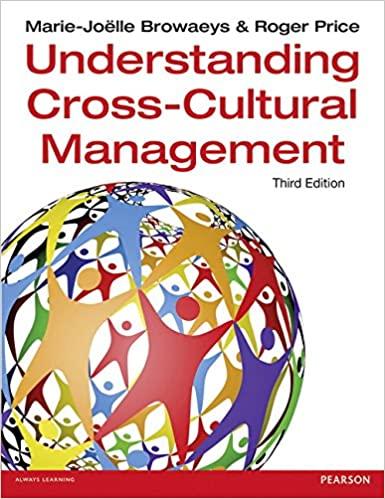The chairman of an investigation ordered by Japans parliament into the Fukushima nuclear disaster has declared that
Question:
The chairman of an investigation ordered by Japan’s parliament into the Fukushima nuclear disaster has declared that it was a crisis ‘made in
Japan’ resulting from the ‘ingrained conventions of Japanese culture’.
Kiyoshi Kurokawa, chairman of the Diet’s Nuclear Accident Independent Investigation Commission, said the crisis was the result of ‘a multitude of errors and wilful negligence’ by plant operator Tokyo Electric Power, regulators and the government.
In an English language summary of the commission’s fi nal report, Mr Kurokawa blamed the plant’s failure on ‘our refl exive obedience; our reluctance to question authority; our devotion to “sticking with programme”; our groupism; and our insularity. What must be admitted – very painfully – is that this was a disaster “made in Japan”’, he added.
‘Had other Japanese been in the shoes of those who bear responsibility for this accident, the result [might] well have been the same.’
In his preface to the Japanese version of the report, however, Mr Kurokawa off ered a more measured critique of the cultural background to the crisis, blaming one-party rule, seniority systems and lifetime employment rather than the nation’s culture as a whole.
Mr Kurokawa’s commission is leading one of three large-scale investigations into the failure of Fukushima Daiichi, which suff ered multiple reactor meltdowns and hydrogen explosions after its safety systems were knocked out by the earthquake and tsunami that hit Japan’s north-east coast on 11 March 2011. All three have criticized Tepco, politicians and bureaucrats.
The Diet commission was intended to bring a broad range of perspectives to analysing the causes of the crisis.
Mr Kurokawa’s commission also included a former diplomat, two lawyers, a chemist, a seismologist and a science journalist.
The report, in eff ect, accuses Tepco of covering up possible earthquake damage to Daiichi.
Asked on state television about the Diet report, Naomi Hirose, Tepco president, said he had not yet read it.
The commission blames poor communication by the utility and bureaucrats responsible for nuclear safety for causing Naoto Kan, Japan’s then prime minister, to lose trust in them and attempt to manage the crisis directly.
Questions
1. How do you believe Japanese readers of the report would have reacted if the report in Japanese had contained the criticism of Japan’s culture which was given in the English summary?
2. The Tepco president claimed on television that he had not yet read the report. How would you interpret this reaction?
3. Look at the final paragraph of the text. What do you think the term ‘trust’ means to the prime minister and what lies in the phrase ‘poor communication’ which led that trust to be lost?
Step by Step Answer:

Understanding Cross Cultural Management
ISBN: 9781292015897
3rd Edition
Authors: Marie Joelle Browaeys, Roger Price





